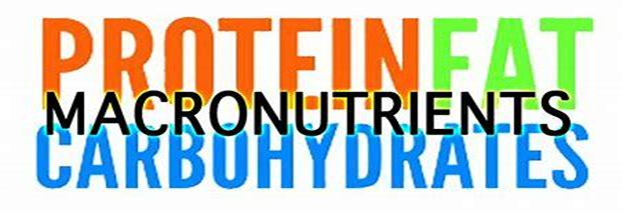This week we are welcoming back Heidi Maynard, RN to top off her Part 1 post last week! Heidi gave us a deep dive into protein, fat, and carbohydrates. Be sure to read Part 1 before reading on!
And now without further ado, welcome back Heidi!
So why should you track your macronutrients? Not all calories are created equal and calorie counting just does not prove to be as effective in making sure we are consuming a balanced diet. For instance, if you are consuming your daily calorie goal in processed foods with lots of fats and sugars, it would not be the same quality of food as if you were consuming your daily requirements for fat, protein, and carbs. Macronutrient tracking can seem complicated and slightly overwhelming when you think about it, but we promise the rewards of working with a dietitian, your doctor and a health coach and truly determining your macronutrient needs will be so beneficial to your overall health-being. I will always suggest that my clients start out by tracking what you are consuming on a daily basis, without making much change. “If you bite it, you write it.” This helps to start a routine and it gives your doctor, dietitian, and health coach a starting point to see what you are consuming daily and where to make suggestions for change starting out. There are so many apps and planners that can be used for tracking macros, but sometimes you just need a blank notebook and a pen/pencil to start this journey. Tracking also helps to find food sensitivities, added bonus!! Our society falls into a mindless eating pattern so often and we truly cannot recall everything we eat in a day if we aren’t tracking/ journaling. Mindless eating leads to overconsumption, weight gain, and erratic blood sugar levels, all of the things that nobody wants. Once we master tracking what we are eating and being mindful of our quality of food, we can move into checking nutrition labels and weighing/measuring our food to ensure we are eating the proper amounts. Such items as food scales and measuring cups are great resources to start with.
Before we leave, I want to answer a few questions we received.
Is KETO good for those with diabetes?
- Talking about diet culture is a whole different blog post and I have my own views for each and know that everybody has specific needs at any given time. You must do what you feel is right for your body, but please also always discuss your diet preferences and decisions with your endocrinologist and dietician, and maybe even your health coach to make sure you are making a safe and educated choice for your body and your particular needs. The KETO diet consists of consuming less than 50g of carbohydrates a day and consuming (in most circumstances) as much fat and protein as you would like. We discussed above the risks of overconsuming fats and proteins, especially when you are diabetic so do these things with caution. KETO diet is great for quick weight loss when done appropriately, but no diet restricting a specific macronutrient to that degree should be carried on long term. Remember our bodies need every macronutrient in a healthy balance so that our bodies can perform all its basic functions.
“Why if I eat a meal high in fat, do I tend to have a blood sugar spike 3-4 hours later”?
- Research has shown that meals higher in protein and fats cause a prolonged blood glucose rise for several hours after eating. Most of this can be explained by fat and protein slowing gastric emptying. What would normally be your postprandial (after a meal) blood sugar would be skewed based on the slowing of your gastric emptying and your carb source not being processed until much later than you would expect. If you are on insulin, this could change the timing of your dosing of insulin. And we come back to tracking macronutrients. The most important reason why we should track macronutrients with each meal and throughout the day is to ensure we are getting a proper balance of fats, proteins, and carbs and that our stomach and intestines are functioning like they should.
Is eating a balance of fat, carbs, and protein the best way to control my diabetes? If so, how do I learn to eat in a balance?
- I will give you the quick version of what we discussed above. Yes, eating all the macronutrients in a balance will lead to better blood sugar control and overall feeling well. You will feel better because you will have a more even glycemic index which will eventually lead to weight loss and the need for less medication with better blood sugar control. When we consume all the macronutrients in a balance, our body functions like it should. Macronutrient needs are based on individual lifestyles, exercise, and medical therapy. Discussing your specific needs and receiving more information on the specific amount of each macronutrient you should be consuming each day can be gathered during a session with your dietician. Always start by just tracking what you are eating daily. It gives you and your medical providers a resource to make suggestions for changing your diet to better balance out your lifestyle. Once we can get down with tracking what we are consuming, we can get into the more complicated tasks of in-depth reading of nutrition labels and measuring/weighing foods with devices such as food scales and measuring containers/cups. In my opinion eating a healthy balance of each macronutrient each day gives you food satisfaction. You are full, satisfied, and left without the feelings of guilt from over consuming any one of the macronutrients. When we balance our macronutrients and track most of the time, it leaves time for “balance” which consists of indulging on those snacks or treats we do not always eat but do enjoy eating sometimes. Always remember to live life by the 80/20 rule. Eat clean 80% of the time and enjoy your life the other 20%. Super restriction on certain macronutrients can lead to overconsumption when we are given the opportunity to eat those things that we restrict too much.
Visit Heidi at Simply Prepared:
www.simplyprepared4you.com

References:
Rosett. J. & Hu, F. Nutritional Strategies for Prevention and Management of Diabetes: Consensus and Uncertainties. Diabetes Care ( 727-730). 2019.
Gupta, L., Lal, P. & Knandelwal, D. Optimizing Macronutrients in People with Diabetes. Novonordisk Education Foundation (65-71). 2018.

